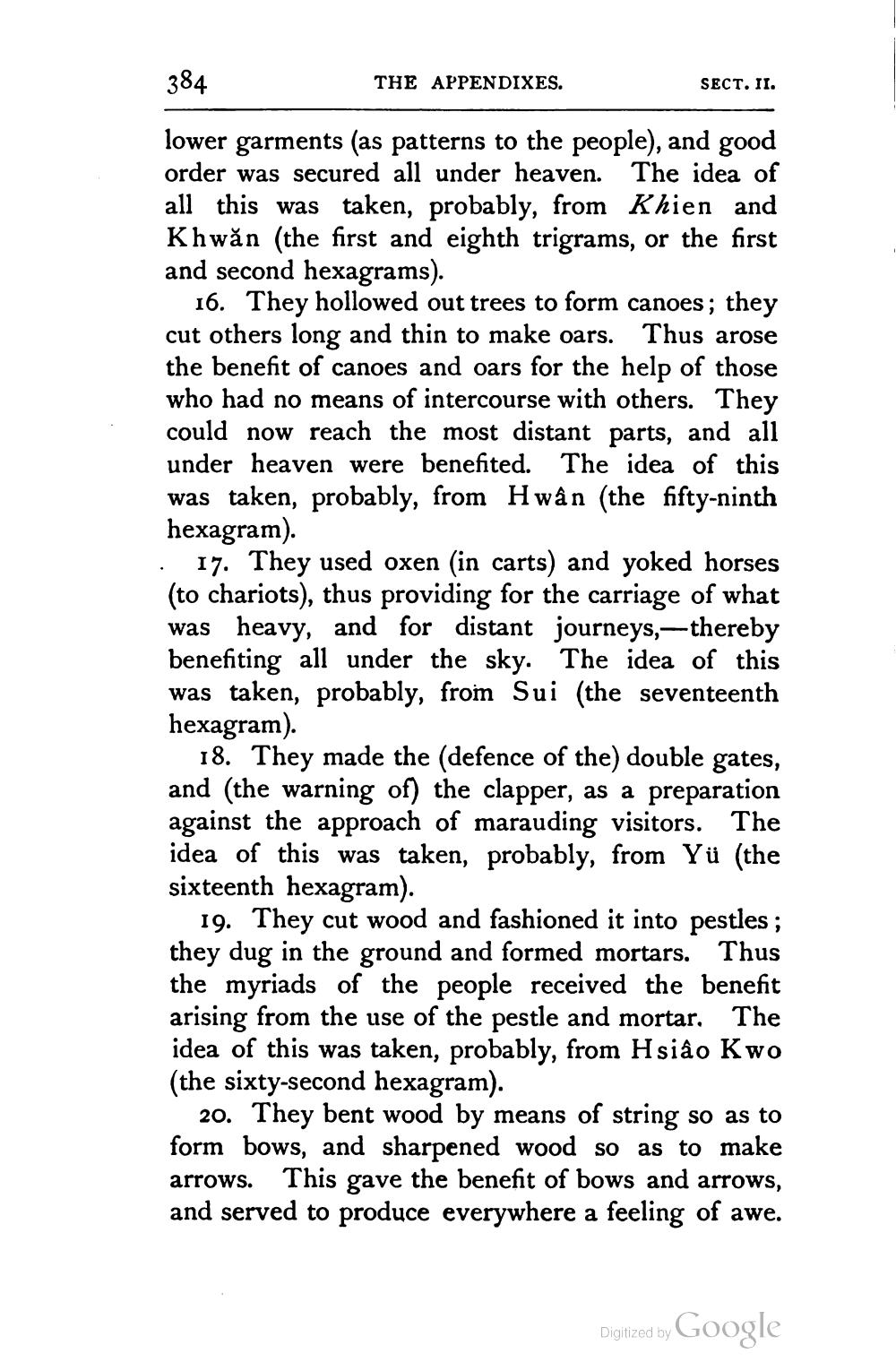________________
384
THE APPENDIXES.
SECT. II.
lower garments (as patterns to the people), and good order was secured all under heaven. The idea of all this was taken, probably, from Khien and Khwăn (the first and eighth trigrams, or the first and second hexagrams).
16. They hollowed out trees to form canoes; they cut others long and thin to make oars. Thus arose the benefit of canoes and oars for the help of those who had no means of intercourse with others. They could now reach the most distant parts, and all under heaven were benefited. The idea of this was taken, probably, from Hwân (the fifty-ninth hexagram). . 17. They used oxen (in carts) and yoked horses (to chariots), thus providing for the carriage of what was heavy, and for distant journeys,—thereby benefiting all under the sky. The idea of this was taken, probably, from Sui (the seventeenth hexagram).
18. They made the (defence of the) double gates, and (the warning of) the clapper, as a preparation against the approach of marauding visitors. The idea of this was taken, probably, from Yü (the sixteenth hexagram).
19. They cut wood and fashioned it into pestles; they dug in the ground and formed mortars. Thus the myriads of the people received the benefit arising from the use of the pestle and mortar. The idea of this was taken, probably, from Hsiao Kwo (the sixty-second hexagram).
20. They bent wood by means of string so as to form bows, and sharpened wood so as to make arrows. This gave the benefit of bows and arrows, and served to produce everywhere a feeling of awe.
Digitized by Google




